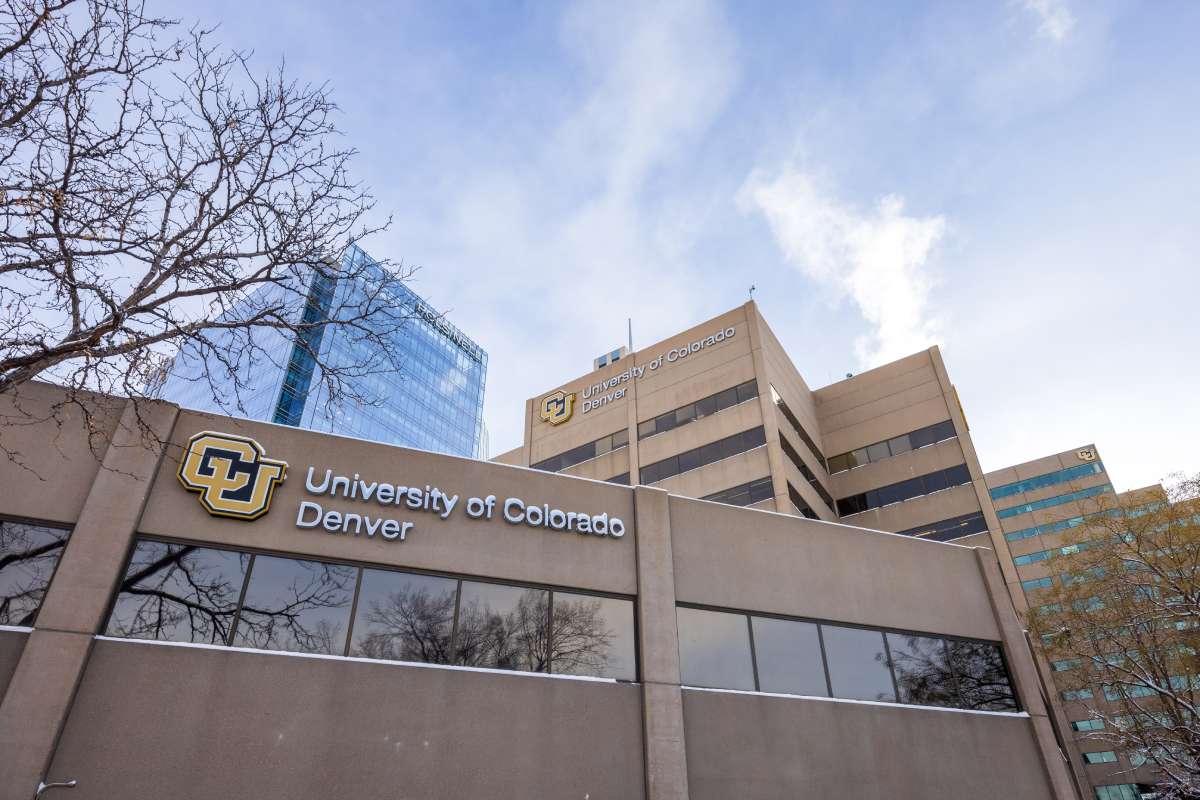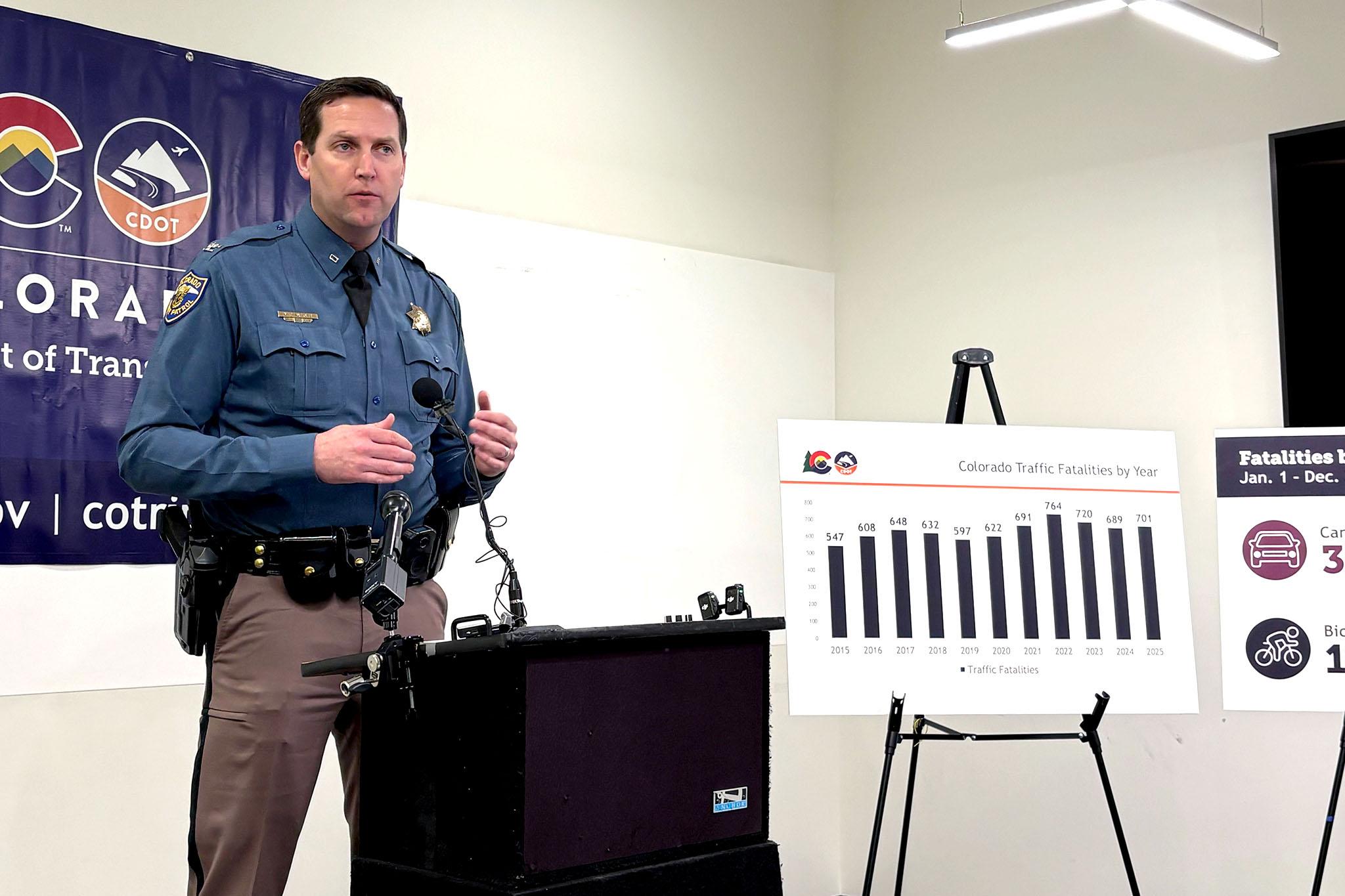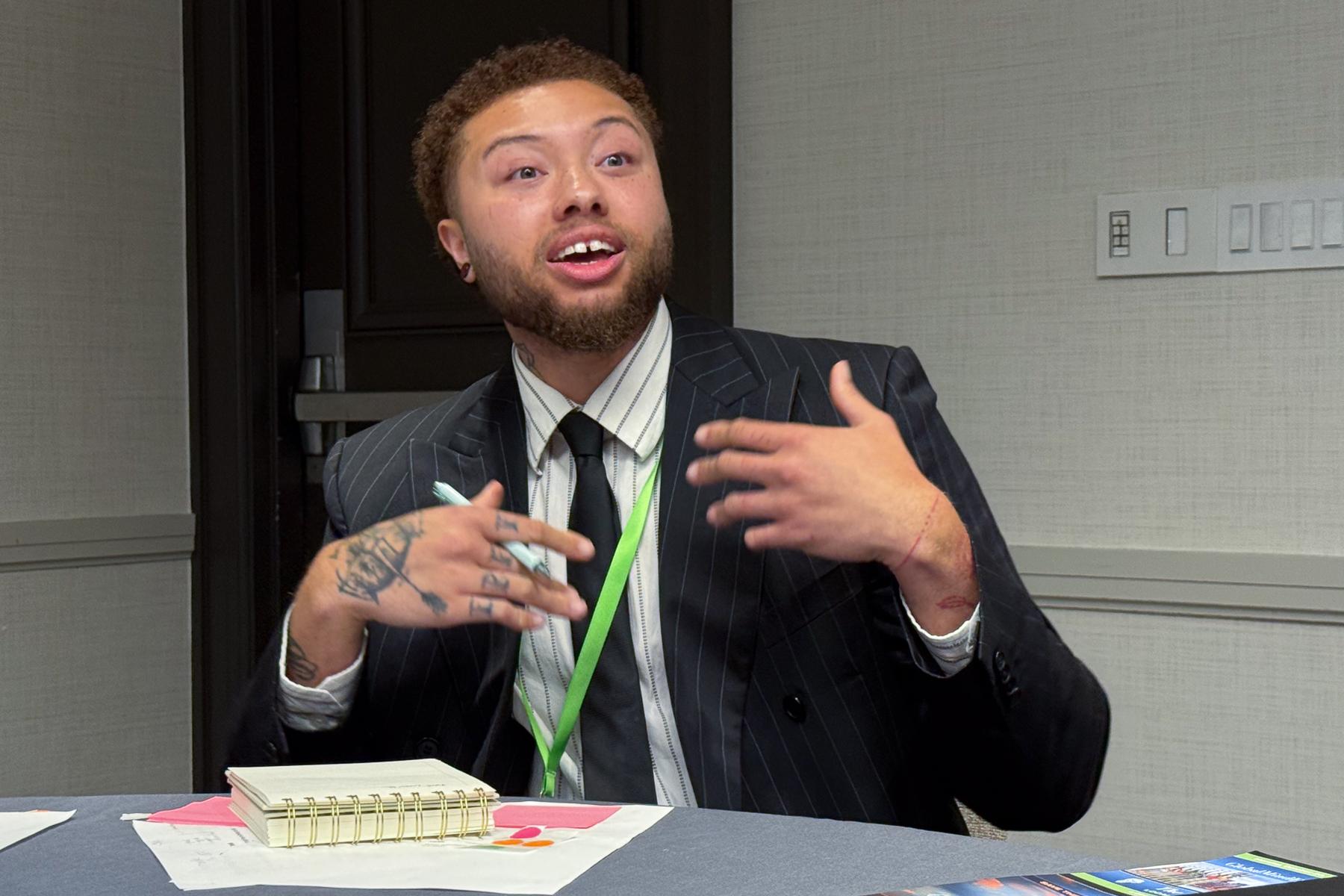
In today’s economy, it’s not enough to have a college degree.
Instead, students have to be hustling for internships, jobs, and opportunities well before they cross the graduation stage. And that’s especially true for first-generation or low-income students who often don’t have access to the same connections as their more affluent peers.
Even with a degree in hand, college graduates are increasingly working in jobs that either don’t require a degree or finding themselves “underemployed” in fields outside their field of study.
Denver-based non-profit GlobalMindED hopes to help bridge the gap between college and the world of work, with the goal of helping graduates make the most of their degrees.
For 11 years, the group has worked with thousands of underserved students — in Colorado and across the nation — with limited resources, connecting them with mentors, internships and jobs. Many challenges face low-income students in particular. Only about 29 percent of low-income high school graduates earn a certificate or degree within four years after graduation.
And as the working landscape goes through seismic shifts, the organization thinks it could take its assistance to a national scale and remake the transition from higher education to meaningful employment for millions of college students.
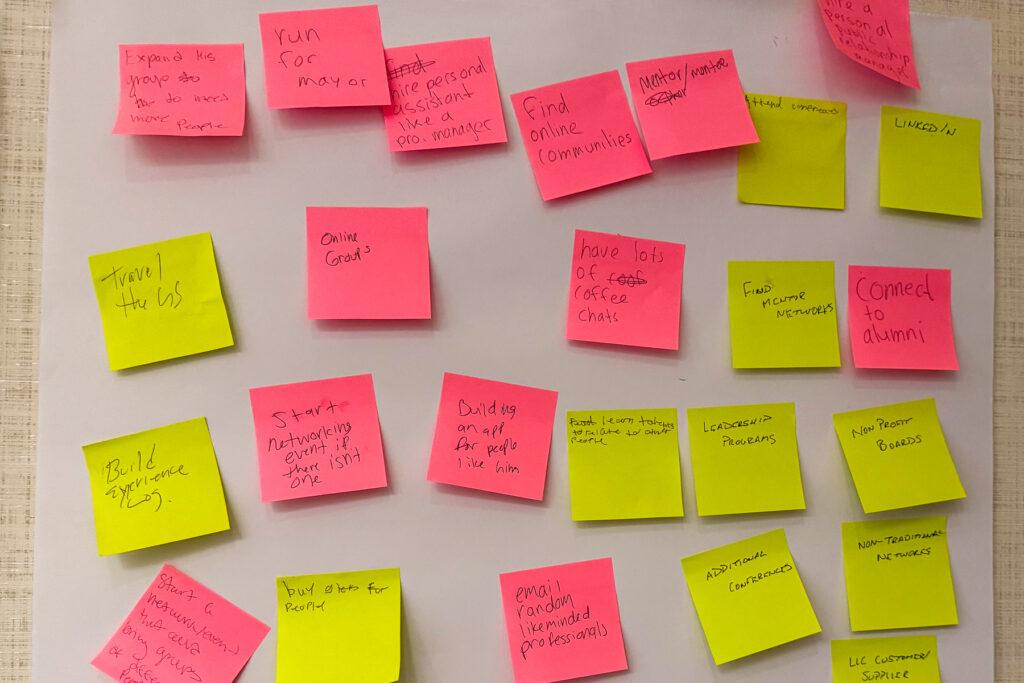
“How might we design a platform that bridges the gap between graduation and career readiness so that students can thrive both professionally and financially?” said Zak Zielezinski, the CEO of GLX Studio and an advisor for the technology team at GlobalMindED’s 11th annual conference in Denver last week.
GlobalMindED is working with technology and artificial intelligence experts like Zielezinski to develop a digital platform called DemonstrateU to help students anywhere gain the soft skills and guidance they will need to advance. The organization also hopes to partner with SHRM, the largest HR organization in the world, to find and categorize jobs, and with the AARP to recruit the best of its 40 million members to be matched with students as mentors.
But before it can create this tool, the group needs to understand what the students it wants to serve really need, and how best to offer it to them. To do that, the first phase of the futuristic undertaking will involve interviews with thousands of college grads.
“Going from college into their career — what helped, what didn't, where there were gaps and how did they make that transition successfully (or not)?” said Zielezinski.
Solving this disconnect could potentially help higher education as much as the students who graduate from it. This is a difficult time for colleges – they’re losing research dollars, the economy is undergoing rapid technological change, and despite higher lifetime earnings for degree holders in the vast majority of cases, some Gen Zers are losing faith in the value of a college education. GlobalMindED founder Carol Carter said colleges must clearly articulate the value of a degree to students.
“We have to prove that at the end of that four years we're going to be able to get them into these good jobs and not jobs that they would have had with a high school degree.”
Many colleges are entering an era where they must “very surgically know exactly where every single graduate is and what they are doing.”
Complex lives and uncertain paths can make the future fuzzy for graduates
At the Denver conference, Zielezinski led a real-time, student-centered design session to help develop DemonstrateU. It was a chance for industry leaders, college trustees and students to hear from one recent college graduate about his goals and challenges, and then come up with tools to help him.
That’s where Miyagi Scott comes in. The 27-year-old, a recent college graduate from New York state attending the GlobalMindED conference, volunteered to be interviewed for the design thinking session.
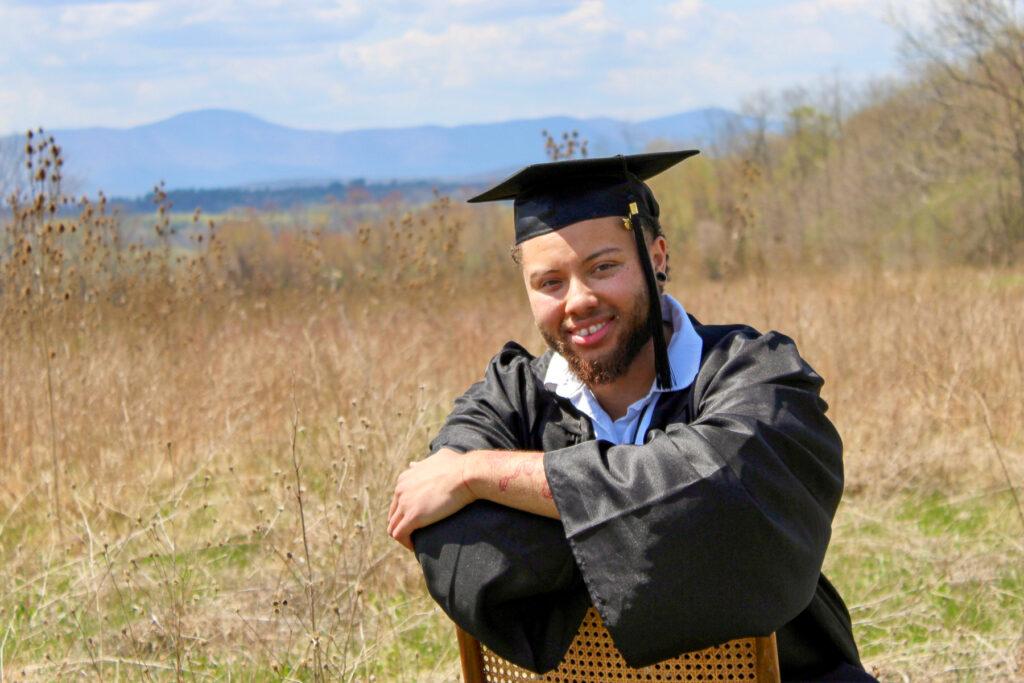
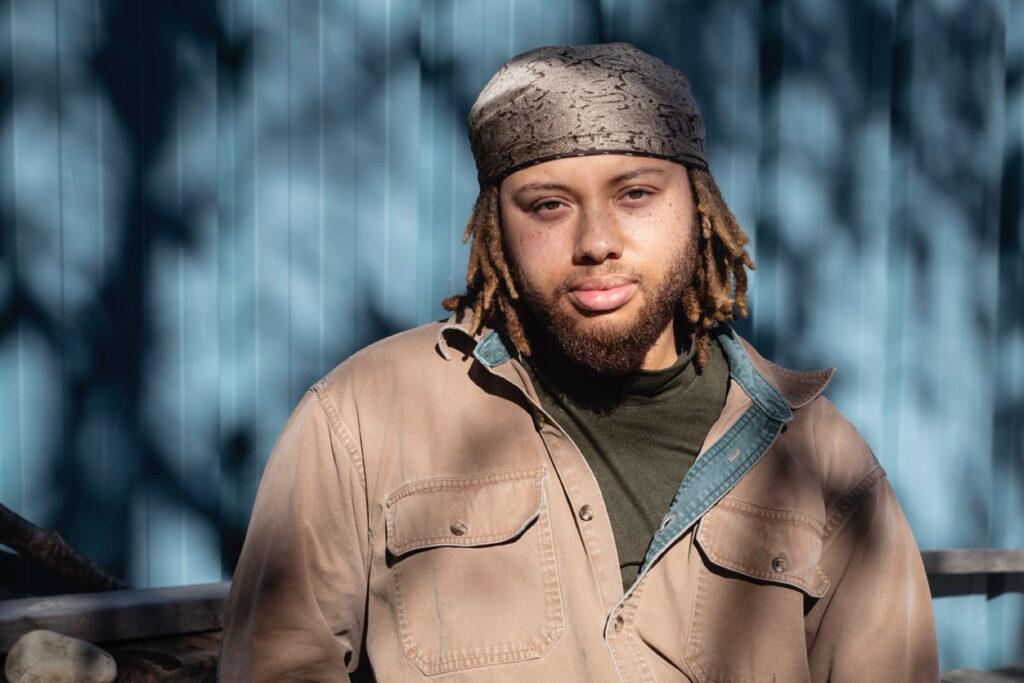
Like many first-generation college students, Scott’s life is complicated. He’s from a very religious family and became homeless in his final year of high school after conflicts over his sexuality. He was working overnights and ended up dropping out of school, but later obtained his GED.
Throughout these struggles, Scott still had big ideas. One was for an app for freelance artists and performers to share ideas and work. He got connected to a mentor who taught him some basic coding, told him he was smart and asked why he wasn't in college.
“That was the first time that I've heard that … I never really thought about that before, so that inspired me to go back to school,” Scott tells the participants in the design session.
Scott recently graduated from college with a business degree, a 3.9 GPA and a Chancellor’s Award for Student Excellence. But he’s found the job market hard to break into, with lots of ghost job postings and companies that want more specialized skills than he has.
“Students are really having a hard time finding a job,” Scott explained. “I've spoken to a lot of students who are not able to find something and they have degrees.”
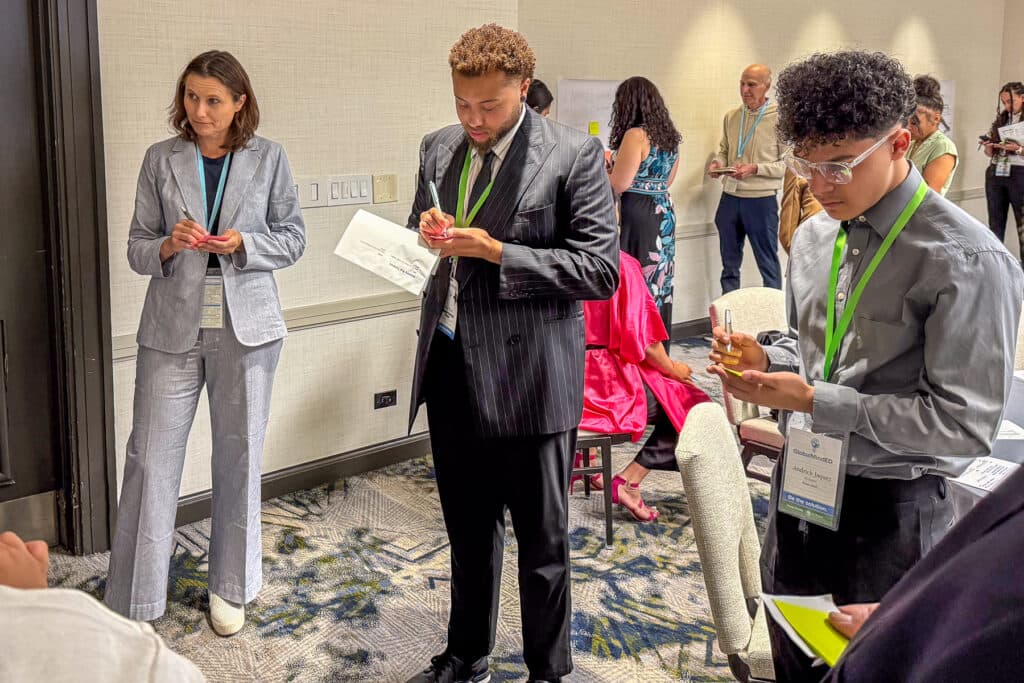
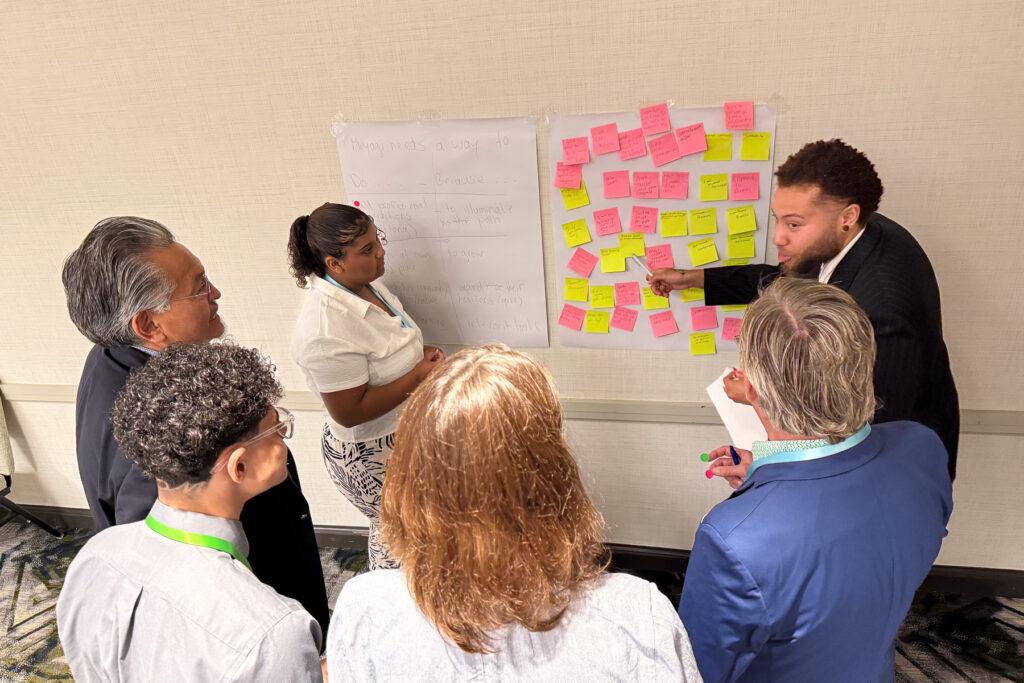
In his interview before the group, Scott is asked in what ways college prepared him well for the future and how it did not. Scott said a mandatory public speaking class was extremely beneficial and helped him find his voice. The business content he learned was good, but he believes some colleges aren’t prepared as well as they should be to connect their graduates to current job openings and industry mentors, nor do they teach students the latest tech skills, such as artificial intelligence.
Scott is also still figuring out exactly what he wants to do. He’s recently become intrigued with cybersecurity and will start an online Master’s in the field this fall.
“My idea is to make it more bite-sizable and deliver it to communities that don't have that accessible knowledge of cybersecurity, how to protect yourself, your data.”
Miyagi’s main challenges are “time” and a lack of a network
“If I had the time, I would love to just be able to focus on my studies and to maybe do an internship and really dive into that world that I'm looking to pivot into, but right now I still have to provide for myself and work full time, so that's challenging.”
Scott works for a nonprofit that helps foster youth. He also provides emotional and financial support to his sisters and niece in foster care. He moved to upstate New York because of his love of the outdoors and started a business, Queer Outdoor Adventures, to make nature more accessible.
“I was looking for a community and when I couldn't find it, I just ended up building it.”
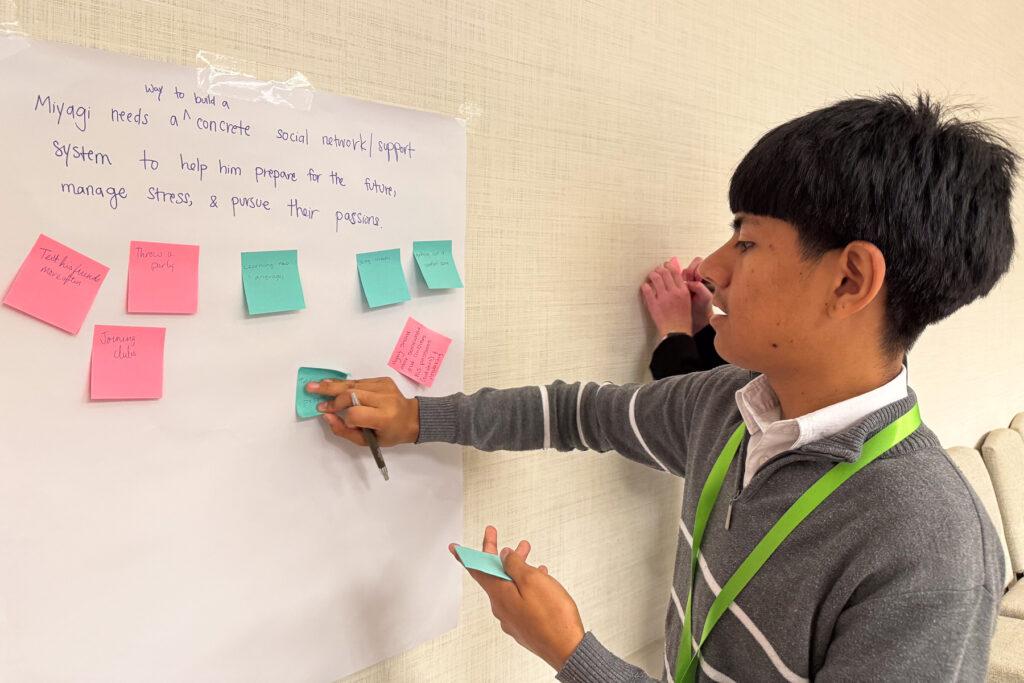
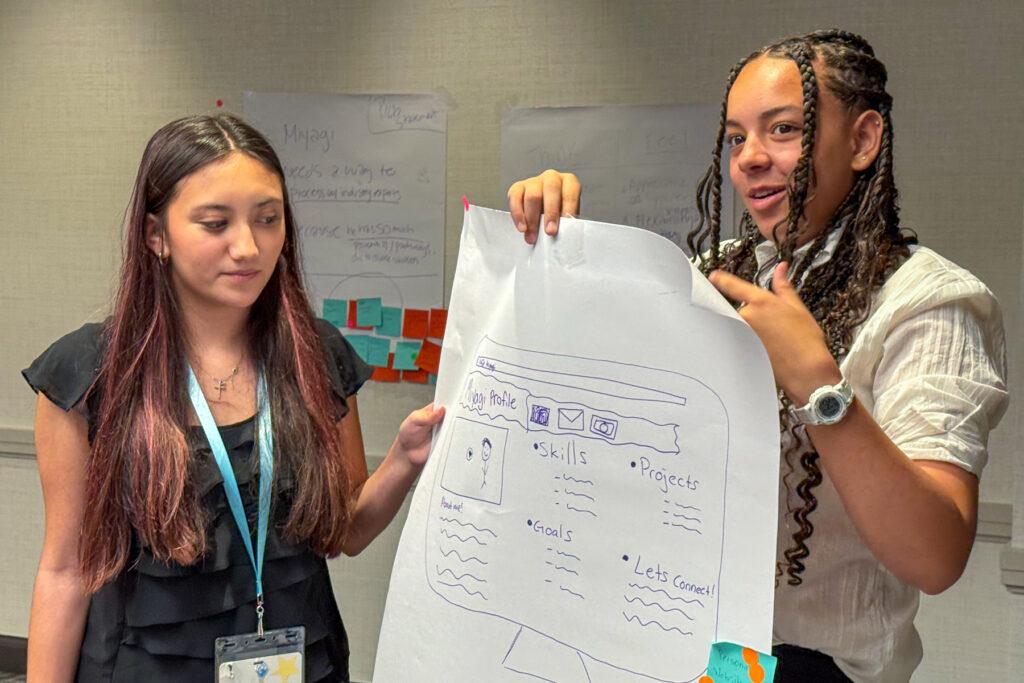
Scott has so far little experience in the corporate world. Asked what he’s most afraid of in this transition from college to what’s next, his answer is familiar to many young adults trying to find their way to the right career path.
“I am passionate about cybersecurity, but this was a newfound passion based out of a need, and what scares me is I could go down this route and then maybe it's not my path.”
The group listens to Scott’s story and then, in a series of timed challenges, they brainstorm and create ‘prototype’ solutions — hundreds of ideas on sticky notes attached to flip chart sheets circling the hotel conference room. This session provides a snippet of what the first phase of exponentially scaling up GlobalMindED will look like: gathering stories from college grads, employers and mentors to figure out how best to build a network that connects the two.
The groups generate problem statements based on Scott’s situation and also solutions. Most groups center on a way for Scott to widen his network and support system to prepare for the future beyond a Global MindED mentor. The advice and imagined offerings could help shape the future digital platform.
For Scott, they suggest:
- Leading a co-mentoring study group in computer science.
- Creating a video of himself and interests as a way to find some industry experts who could help him gain knowledge about cybersecurity as it goes through an academic program.
- Volunteering at high-profile corporate events to meet people to help streamline his specific career path.
For the platform, they imagine:
- A leadership program where he could find other people who are like his “future” self to try out work in different spaces, from government to tech.
- A one-stop shop, an online personal growth and development hub for sharing ideas, possibly finding a coach or mentors in AI and cybersecurity.
Scott likes all the ideas, furiously scribbling down notes. He said meeting other students and recent graduates at the conference, he realized he wasn’t alone. They felt the same way and had the same questions.
“I know where I want to be, but I'm not really sure how to get there,” he said. “When you do have a lot of interests and you do have a lot of skills, how do you get there?”
As GlobalMindEd tries to reimagine itself as the premier college-to-jobs platform in the country, it hopes future students pondering that question will at least know where to turn.



